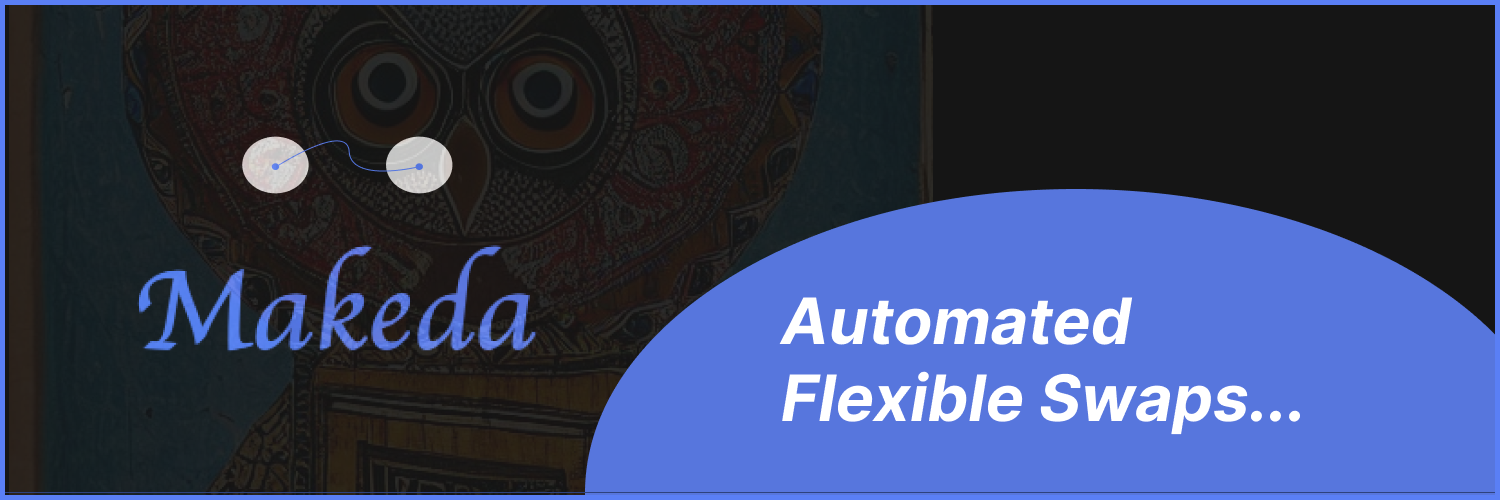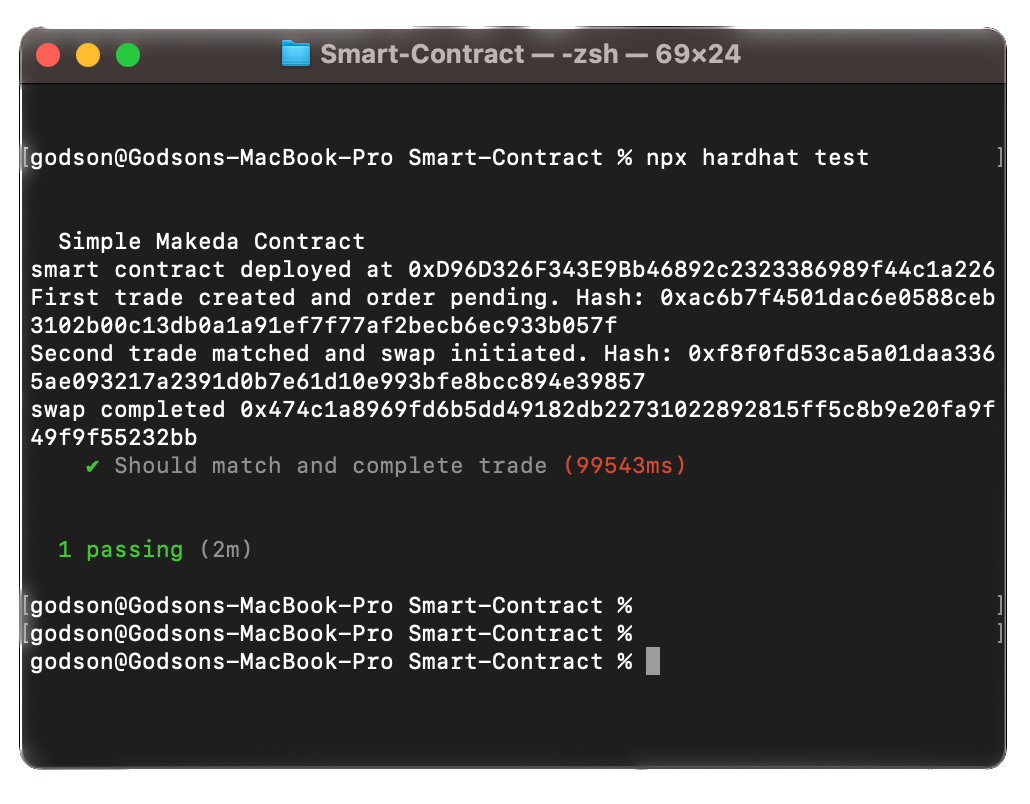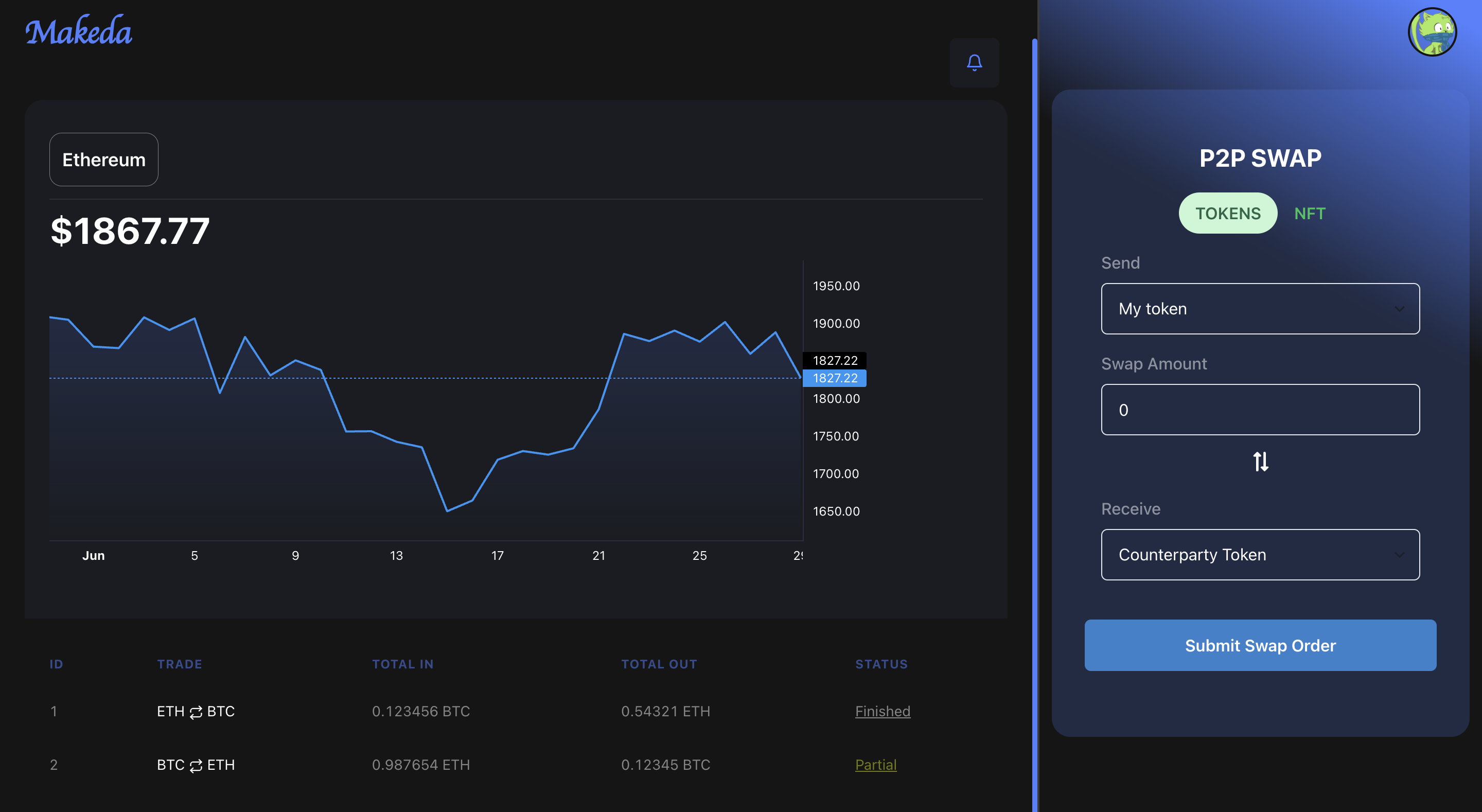The Makeda contract facilitates peer-2-peer trading of ERC20 tokens using a priority-based matching system for automated trade execution (ATE).
Users submit trade orders, which are then matched with existing orders based on their priority level. The contract supports both partial and complete trades, enabling users to specify the desired quantity of tokens for each trade.
- Peer-to-peer approval
- Order size Priority matching
- Time Priority matching
- Price Priority matching
HardHat and Nodejs Installed
git clone "https://github,com/acgodson/makeda"
cd Smart-Contract
npm installTest Contract
npx hardhat testDeploy a new TradeContract
npx hardhat run scripts/deployContract.jsInitialize your custom tokens
const tokens sting[] = <addresses>;
const prices sting[] = <addresses>;
...
await tradeCcontract.initialize(tokens, prices, {gasLimit: 500000});The Solidity smart contract allows users to submit trade orders, perform swaps, and cancel swaps.
-
submitTradeOrder: Transfers the trader's tokens to the escrow contract, calculates the counterparty amount based on the token prices, creates a new trade, and tries to find exisitng match for the trade.
-
getPendingSwaps: Returns an array swaps pending fulfillment for a given user.
-
completeSwap: Allows the counterparty approve a swap. It marks the swap as completed, updates the trade states, and records the fulfillments.
-
cancelSwap: Allows the initiator or counterparty to cancel a swap, returns locked tokens to the respective parties, updates the trade balances, and deletes a the swap record.
-
updateTokenPrice: Allows contract owner to upate current prices of tokens, (this can be fetch from an oracle in production).
In Summary, the Makeda Trade Contract provides a basic framework for submitting P2P trade orders and performing swaps between tokens, and can be modified to fit different use cases such DEX, aunction platorms etc


